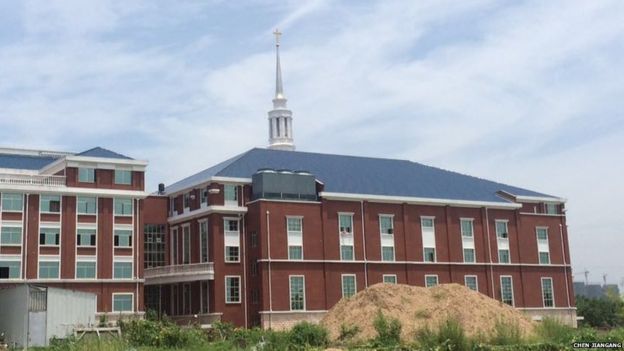China detains Zhejiang Christians amid cross removal dispute
By BBC News
Seven Christians have been detained in China accused of embezzlement and disrupting social order.
Pastor Bao Guohua, his wife and five church employees were detained in Jinhua, in eastern Zhejiang province.But the church's lawyer Chen Jiangang told the BBC he believed they were being punished for protesting against the removal of their church cross.
The local government in Zhejiang has recently been ordering state-sanctioned churches to stop displaying crosses.
A number of churches have also been demolished after the government said they broke building regulations. Christians have said the crackdown is an attempt to rein in the influence of Christianity.
China blog: China cracks down on Hong Kong evangelists
Chinese state media on Wednesday said that Mr Bao and his wife, Xing Wenxiang, who are pastors at the Holy Love Christian Church, had embezzled hundreds of thousands of yuan in church funds and "conducted illegal business".
They are also accused of "deliberately hiding accounts, and on several occasions distorting the truth to incite social unrest among believers," according to a widely reproduced report by Zhejiang Daily newspaper.
But lawyer Mr Chen told the BBC that their arrest was an act of retaliation by authorities.

"I can tell you that if church leaders had agreed to take down the cross, there would have been no problem. But they refused. That's why they were detained," he said.
"What is unusual is that this was an official church, recognised by the Communist Party. Everything had been properly approved by the authorities," he says adding that the church gained approval in 2008.
China is officially atheist but constitutionally guarantees religious freedom. But churches, which have flourished in particular in the country's southeast, have to be approved by the state.


0 Comments:
Post a Comment
Subscribe to Post Comments [Atom]
<< Home